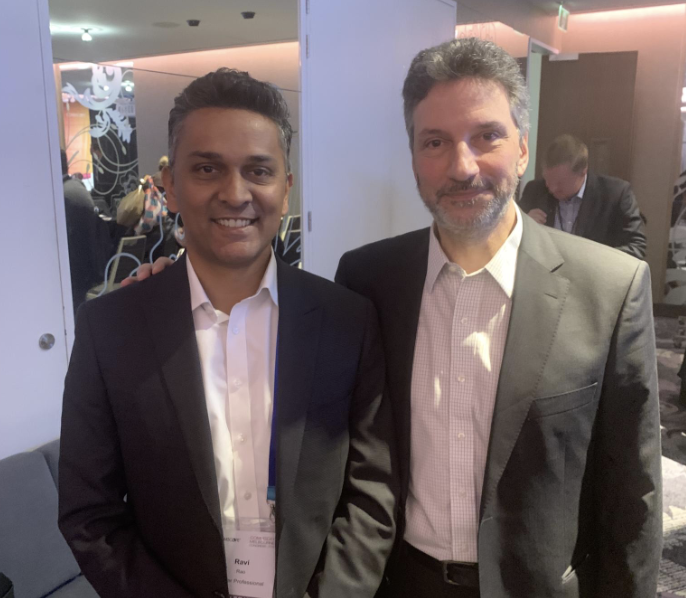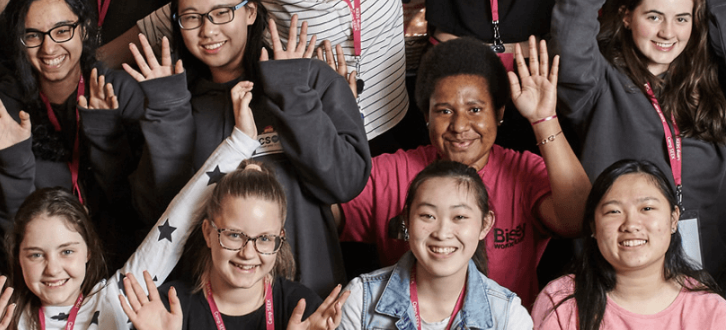Re-imagining the customer journey in recruitment
Do you want to be known as a company who wastes candidates' time? That's the reality for many organisations who are competing for talent right now. | We all know the importance of the customer journey: but no-one is talking about it in a recruitment context. As someone who speaks to candidates all day I can tell you the “candidate journey” needs a re-think. To start with, put yourself in your candidates’ shoes and apply for the job. Ask yourself:
(That's not a typo: I have seen companies interview 10 times). It's a no-brainer: of course, you would want to minimise your time spent filling out forms and the company would want to spend less time reviewing unsuitable candidates. I think creating a long interview process (10 in my example) is a way for companies to subtly reduce headcount hires, rather than an actual real process of vetting and assessing. There is also this perception that a long recruitment process will not only save your HR and Talent teams' time and give you the best result because only the dedicated and invested candidates will apply. In my opinion, this doesn’t always bring the best talent to the table which should be the key focus. But what companies fail to understand is what they don’t know. If you are a specialist recruiter like Hunter, you will understand the candidate market and who have applied. It's more important to know who hasn't applied. As a career recruiter, I love a good process. It has helped me build my business. But I am also very practical and pragmatic about our approach and like to keep the application process real and relevant to the candidate journey. As a business who makes its income from having in-depth candidate knowledge of the Australian Telecommunications industry, I know that a great candidate journey will result in more happy placements. For those HR professionals think of the candidate recruitment journey like a great corporate induction process. Statistically, the better the induction makes for better the retention and productivity outcomes. Connect with us if you want to review your candidate experience and create amazing outcomes for 2020. | ||||
Why 'high touch' trumps 'high tech' in recruitment
When it comes to applying for roles, candidates have a lot more options now. | "Candidates love spending hours filling in online application forms." Said no-one ever. It's time for some truth-telling. When it comes to applying for roles, candidates have a lot more options now. Do you think they would prefer to spend two hours filling in application forms or a short process followed by some sort of contact? It's a no-brainer. In recruitment, we have gone back to relationship-building and focusing on a better experience before a candidate engages in a process. This could be as simple as conducting more face-to-face interviews or a phone call, as opposed to just applying online. At Hunter, we pride ourselves on this 'high touch' approach. It can take more time, is more costly to our business, but ultimately the candidate gets a better experience - and our clients get a better outcome. In highly-populated countries like India and China, they might need more process and a longer application cycle. Sure, that works for that region. But countries where skills are in such short supply - like in our telecommunications market, where it is very niche and highly networked – the approach needs to be tailored. The effect on company brandingA candidate once told me, "I just spent an hour filling out a form, and then three days later I get a rejection notice. What a time-wasting exercise,” he said, followed by, “I will never apply to that company again!” Or, you might have candidates that are suited to the role, but they drop out because the process of applying or engaging is too difficult. Focusing on hiring managers' customer journeyA hiring manager needs the right skill set - and generally quickly. There's also the consideration of what the business needs in terms of productivity and outcomes. If the hiring managers' journeys are taking three weeks, a month or longer to finalise, then you have a poor client experience and a poor customer journey. Seeing the hiring manager as a customer is exactly how we see things at Hunter and we are very conscious of their customer journey. If we can put a real focus back on the candidate experience and hiring managers experience I feel there are better productivity benefits in the long-run. | ||||
"Too many blokes on the team": how do we move the needle for women in telco?
| A recent report (from the Australian Computer Society) showed that women make up 29% of the technology workforce here in Australia. This is far less than in professional services (44%) and other sectors. Why is this the case? Having watched the telecommunications industry evolve over the last 20 years, let's analyse how we have changed and some potential solutions to increase women in technology and telco. The view from the top is rosyOrganisations have been quite successful in getting women into the upper echelons of business, at the executive levels.But in the middle of the tree - think middle to senior management - not as much. That's because of the experience of those women has come through generationally. Telecommunications has come a long way, but it takes time to change attitudes with people who have been in the industry for years. Universities have been great at encouraging women to move into technology and telecommunications from a graduate level. But we're probably not going to see the fruits of that for another eight years. A gap in experienceThere's a small handful of women who have been in telecommunications for 30 years. Then you have those who are starting their careers in the sector. So you are left with a massive gap between hugely experienced professionals and the former group. And businesses are forced to make a compromise in some instances. And that's a hard position because realistically, you should choose the best person for the job, whether they are male or female. I've actually had managers tell me they have had too many blokes on the team. They genuinely want that diversity. But we need to continue to work at getting female talent in at all levels to build wider levels of experience. Partnering at the education levelThere are some good groups supporting women in technology and engineering -like WIT and NCWIE. Camp Seek is a great initiative at the school level. It invites girls interested in tech in years 9–11 to come together for a week-long event to develop relevant skills and explore their career options. Well done Seek - and more of that is needed. So what's next?We need to do more at the university level, encourage more knowledge sharing in organisations and continue to build leadership programs. And from the people I've spoken to over the years in telecommunications, I'm confident we can continue to keep this growing. | ||||
Who is representing your brand? How to choose a recruiter for your business
If you have a recruiter that is 100% invested and focused on your business, then the candidate journey will be well managed. | If I was looking to assess a recruitment agency for my business, I would first look at the recruiter’s personal or business brand and make sure it matched my expectations. Remember, a recruiter is a reflection of your company brand. Conversely, a company should engage an agency who has a strong brand in the candidate market to attract the right talent. Many organisations don’t understand the mechanics of what it takes to find good talent - and branding matters. If you have a recruiter that is 100% invested and focused on your business, then the candidate journey will be well managed. It comes down to time and investment of time. This is really what recruitment is all about: time and an investment in time. Anyone who has worked in recruitment will understand the huge amount of time it takes to find good talent. Managing the candidate journey on a regular and consistent basis also takes a lot of time. Cultivating the candidate journeyQuite often the candidate journey will start with an agency long before a client has a requirement. I am a little bias, but this is exactly why you would engage a specialist agency. Anyone can advertise on Seek and LinkedIn, but that is not a great way to start a candidate journey. If your company's competitors are advertising on Seek and LinkedIn, where is your companies' point of differentiation? After all, everyone advertises. But does this set your brand apart or reach those candidates that are not looking for work? Of course it doesn't. The real candidate journey starts with an industry connection that is relevant to the candidates' career aspirations. Reaching out proactively and consistently makes a massive difference. ConclusionA good recruitment agency should represent your brand in the best way possible. They should mirror your values and your business expectations. A good agency will also understand they are responsible for driving an incredible candidate journey too. So, make sure you ask how they intend to enhance the experience for your candidates too. |
The three-point checklist to attract better candidates in the telecommunications industry
| What would a contractor say about your company's brand? Telecommunications in Australia is such a small and niche industry, and understanding how your brand reflects in the open market is essential to attracting and retaining new talent. Contact us here for a discussion about the latest telco recruitment trends Employees and contractors are becoming savvier about who they want to work for. With websites like Glassdoor making it easier for employees to share feedback on a company and the experience working with them, project teams need to be aware of how poor branding can impact hiring strategy. Here are three ways to attract the best talent - and understand how your brand is performing in the market. 1. Work closely with your recruiter. A good specialist recruiter is acutely aware of the perceptions (good or bad) of employers out there. Use this knowledge to advance your brand. Understand what your competitors are providing in the way of employment benefits, their company's future direction, salary ranges and training benefits. Quality candidates will do their research and ask contacts for their opinion about your company. A recruiter can help provide this valuable information so you can pre-empt these questions at interview stage. Your brand has a unique selling point. As a hiring manager, you will need to understand your USP and how this compares with other brands. Once you know your USP and competitor landscape, you will be able to target your approach to attract the best-suited candidates to your business. Ask your HR team for their view too, as well as your recruiter's insight into what the market perceives this to be. Beyond what makes you different, candidates in the telecommunications space want high rates, good work-life balance and career development. Read more in Seek's latest survey here. 2. Create your best impression at interview stageGone are the days where a company with a good job held the higher ground. Hiring today has changed markedly compare to doing so during the baby boomer generation. In Australia, we have low unemployment and a small relative population, so good jobs are plentiful and candidates are in short supply. Within this landscape, companies now have to pitch for skilled candidates. Imagine that - getting into a bidding war for top talent. It’s easy to see why this is so important where IP and experience are quickly turned into profits. With all this in mind, invest time and thought into getting your interview performance refined. Like a keynote speaker, have your strategy in place early and practice your 'moves' - namely what you want to discuss and how you will pitch your role. Don’t forget to ask lots of relevant questions and allow ample time for the candidate to ask theirs. Make sure you have answers to all their queries. Again, preparation is the key. 3. Make candidate referrals a priorityReferral candidates are 100% pure gold for companies, especially if secured by a known person or entity. This task is easier for a specialist recruiter focusing on an industry sector, but generalists have a harder task ahead. As opposed to the 'post and hope' approach of online advertisers, referrals are closely aligned and come with a recommendation. Recruiting referrals can be cheaper and faster to hire than traditional hires. When have a high number of roles to fill, implementing a solid referral strategy gives you the ability to mobilise a workforce faster. Hunter Professional is a specialist recruitment firm in the telecommunications space. Want to design an effective recruitment strategy for your next project? Get in touch. |
The four surprising reasons why telco executives miss out on roles
With 18 years of telco recruitment behind me, I've noticed why some executives seem to get those opportunities and others don't. | Executive-level roles are few and far between in the telco space and competition is fierce for these jobs. I've seen highly talented individuals with exceptional experience miss out to seemingly lesser qualified candidates on paper. Further reading: how to ramp up your telco project With 18 years of telco recruitment behind me, I've noticed why some executives seem to get those opportunities and others don't. It often comes down to the small details. Read on for my observations on what might just help you nail that big executive job. 1) Keep ahead of the market at all costs As an executive, you've spent many years refining, investing and developing your skills. A lot of your focus might be on how best you can deliver, design or lead. But try and spare a few hours a month to keep abreast of what’s happening in the market. It takes awareness to know where the next opportunity will come from. Don’t rely on talkative recruiters to share the news. Actively read, search and subscribe to news posts in your area of expertise. For inspiration, we recommend CommsDay and ITWire. Or you can also subscribe to our e-newsletter to get the latest thinking in telco recruitment. It takes consistent monitoring and a commitment to keep up-to-speed with new projects, new technology developments and the companies that are going places. Make these activities part of your monthly ritual. This will drastically save you time trying to find that next opportunity. 2) Invest in your network constantlyExecutive opportunities often arise via word of mouth or through internal networks before being advertised. It takes a lifetime of consistent networking to develop your tribe of business contacts, but it’s well worth the effort. Your network may well uncover your next big opportunity. Think of your network as an extended business family. Nurture and support your network as best you can. Like any good networking strategy, there needs to be a reciprocal 'give and take' approach with information, roles and opportunities. 3) Understand the latest technology changesThe telecommunications industry changes every six to twelve months. The executives that do well understand where the market is headed and what technologies are coming through. They keep themselves educated and seek out those roles that pioneer new ground within the industry. Breaking into new areas of technology is tough and it might take a few attempts. Keep at it and self-educate as often as you can. I have never known a person not to benefit from self-education, so put aside the time to invest in your future. I find industry conferences, launch events, trade shows or online groups are a fantastic way to break into new ground. There's plenty of time to meet with like-minded people who can be an ally for your career now or in future. 4) Embrace new techniques and thinkingGone are the days of the board saying, “we'll just hire the most experienced person in the sandpit.” Executive hires are complex. Everything gets assessed, including:
But one emerging area is the ability to learn and embrace new ways of thinking. This is often not considered as important by executives seeking employment. Committing to a constant learning approach will help you promote your personal brand, especially if you demonstrate this in your current role or at networking events. New ideas that have a measurable positive result indirectly promote your personal brand. And this gets you on the radar of headhunters like me. The business community loves sharing new ways of approaching challenges. So, develop an agile mind and get your name out there. Stay ahead of the telco industry by signing up to our e-newsletter. We'll provide periodic news updates, invites to industry events and share our thinking in the recruitment space, so you are fully informed. |
What can you do when your internal recruitment team stops delivering?
| Imagine this scenario: your project is only days away but your internal team is struggling to deliver. You feel helpless because you need resources, but you trust your team to deliver. It could be a situation you are experiencing right now. There are lots of reasons why internal recruitment teams stop delivering, and it’s not always the internal team’s fault. It’s a tough position for all involved: internal recruiters, the hiring managers that require the skill and the external recruiter who is stuck in the middle. Further reading: The four surprising reasons why telco executives miss out on roles Your internal team is often under-resourced, under attack from HR, finance and management, and also have to spend time recruiting - an extremely time-consuming endeavour. I see this all the time as an external recruitment agent (who also provides outsourced recruitment services). Contact us here to discuss your resourcing approach The business often points the finger, which is not in the spirit of teamwork. So what can be done - and what do you need to assess to get your project back on track? Here are my observations after 18 years spent in the telecommunications recruitment industry. 1. Have a clearly defined recruitment processIs the recruitment process on all levels (HR, financial, procurement and management) clearly defined and documented? This doesn’t take long to do, but I’m amazed at how many organisations just don’t do take the time to document their recruitment approach. Has the recruitment process been communicated and agreed internally? Are all the relevant divisions able to agree to support the structure? If not, start here. By building this foundation, you are your colleagues will save time in the long run. 2. Agree your business focus - and your hiring purposeYour focal point needs to be agreed internally and documented so that all roads head to support this goal. It's at this stage where your business' hiring needs should come first. If you honestly believe that people are your best asset, then this should be an easy decision. The successful CEOs I have had discussions with all agree that business success is based on the skill set of their staff. If we have the right skills, we will not burn cash - but start to create it with the right people instead. A partner at a successful law firm once said to me, “I’ll invest more than my competitors if it means I get the best staff into my business.” That’s why his business is successful - and yours will be too if you follow this approach. 3. Changing from an old-school to new-school management approachDon't get stuck in the past. If you think finding staff is about merely about pure process (and advertising on Seek) you are kidding yourself. Finding top talent requires investment in recruiters, the right recruitment suppliers and skilled heads to run your internal talent team. But guess what: there is a silver lining. Your business will grow from the investment. It will deliver and prosper if you invest. Just read the books of the top ten business entrepreneurs in the world. They all say it. 4. Set realistic expectations for your teamsYour internal team may not always deliver. And by the same token, your external recruitment suppliers won't always either. Have some key measures in place (like KPIs on time to fill for both internal and external hires) and an overflow process that actually supports the hiring process promptly. Again, business hiring needs should be the focus. Managers working hard to deliver should not have to wait 40 days to start seeing candidates….. unless you are recruiting astronauts! Most good agencies are able to deliver quality candidates within 48 hours. If you want to have a confidential discussion about how your recruitment is going, then contact us here. |










